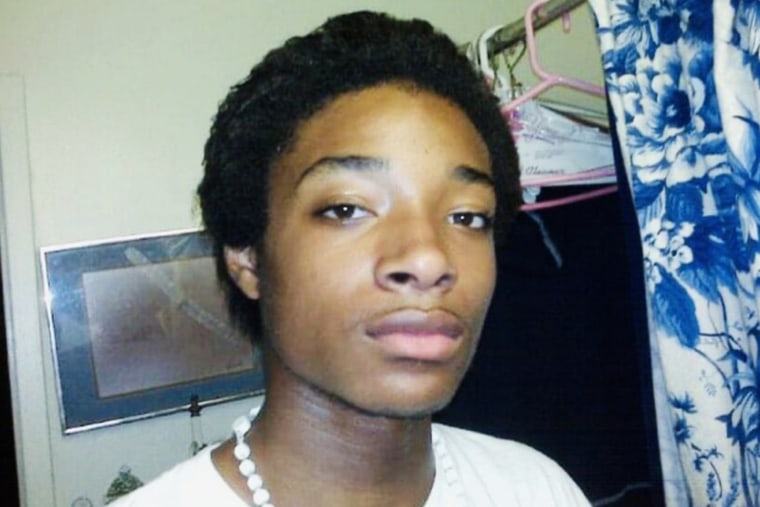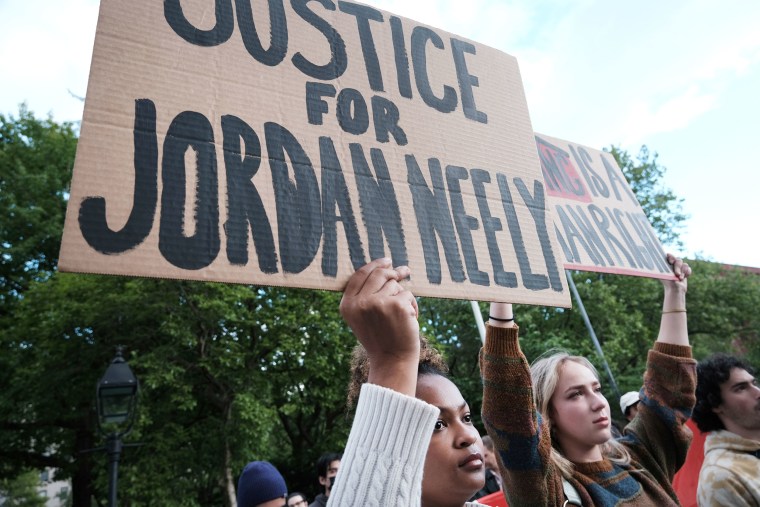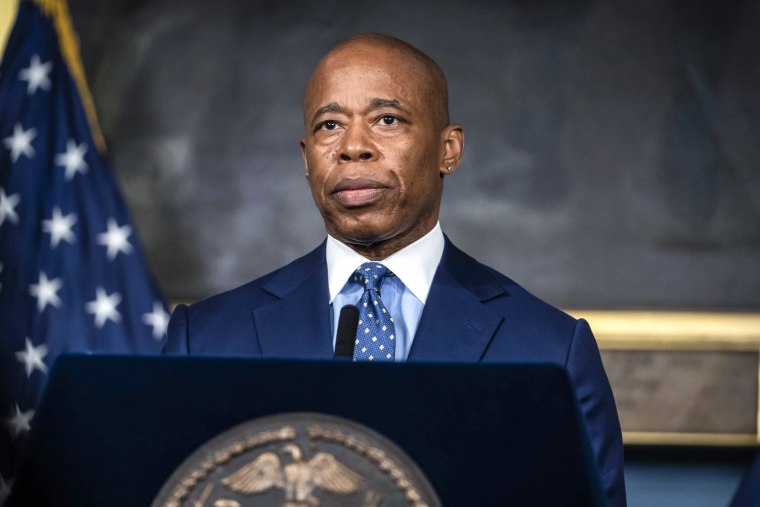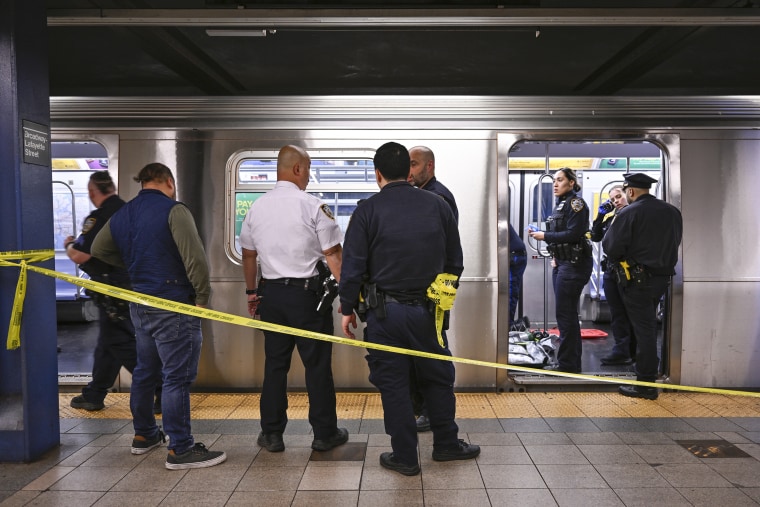New York City Mayor Eric Adams said Wednesday that the death of Jordan Neely at the hands of a fellow subway rider was “a tragedy that never should have happened” and pledged to do more to help people experiencing mental health crises.
“My heart goes out to Jordan’s family, who is suffering great pain and uncertainty about the circumstances of his death,” said Adams, a former police officer who was criticized for his initial muted response to Neely’s death.
Neely died on May 1 when U.S. Marine veteran Daniel Penny put him in a chokehold aboard a subway train in Manhattan.
The 30-year-old Neely was a former Michael Jackson impersonator who was well-known to city outreach workers who try to help unhoused people experiencing mental illness.
The statement is a change of tone for Adams after he initially declined to condemn Penny and instead referenced the rights of subway riders to take action in certain situations.

“I was a former transit police officer, and I responded to many jobs where you had a passenger assisting someone,” Adams said after Neely’s death was first reported.
The comments angered advocates like Shelly Nortz, deputy executive director for policy at the Coalition for the Homeless, who said violence against unhoused people happens “more frequently when we have politicians who feed a negative narrative about homeless people.”
A freelance journalist who recorded video of Neely’s final minutes said Neely had been screaming at other passengers but hadn’t attacked anyone when Penny pulled him to the floor and pinned him. The video shows two other subway riders helping to hold Neely down.
Neely lost consciousness during the struggle and was pronounced dead at a hospital.
More on Jordan Neely’s chokehold death
The medical examiner’s office ruled that Neely died in a homicide caused by compression of the neck but said the question of criminal culpability would be up to the legal system. Manhattan District Attorney Alvin Bragg has promised a thorough investigation.
Penny, 24, said through his lawyers last week that he was only protecting himself after Neely threatened him and other passengers.
“Daniel never intended to harm Mr. Neely and could not have foreseen his untimely death,” said his lawyers, Thomas Kenniff and Steven Raiser.
Protests have erupted in the days since Neely’s death, with demonstrators demanding Penny’s arrest.

Because Neely was Black and Penny is white, some see echoes of the nearly 40-year-old case of Bernhard Goetz, a white gunman who was convicted of a weapons offense after he shot four Black men on a subway train in 1984.
Neely’s family issued a statement earlier this week criticizing the mayor’s initial response.
“The mayor has chosen a side,” said Donte Mills, an attorney hired by Neely’s aunt and father. “For him to put that forward as an excuse for Mr. Penny is very irresponsible, it’s not acting in good faith as a mayor and it’s disrespectful to the family, who is suffering a loss.”
Speaking in a livestream address from City Hall on Wednesday, Adams sought to counter the charge that he did not care about Neely. He noted that Neely shared a name with his own son, Jordan Coleman, and said all New Yorkers “must work together to do more for our brothers and sisters struggling with serious mental illness.”
A message seeking comment on Adams’ speech was left with Mills, Neely’s family’s attorney.

The Adams administration has focused on addressing homelessness in the city, sending police and sanitation workers to tear down homeless encampments.
Trying to steer mentally ill homeless people into shelter and treatment has been a priority for Adams, a Democrat, since he took office at the beginning of 2022.
Adams announced a plan in November to hospitalize some severely mentally ill people involuntarily, citing the city’s “moral obligation to act.”
That approach was criticized by some civil liberties advocates as too invasive, but Adams said Wednesday that the city has “managed to bring many people in crisis to the hospital who desperately needed care” in recent months.

Adams urged New York state lawmakers to pass legislation that would smooth the path for getting homeless mentally ill people into treatment. Nortz previously told NBC News that such policies only exacerbate the inhumane consequences of homelessness.
“They’ve missed an opportunity to educate the public and have instead put a bull’s-eye on the people that really are in need of our compassion and our help,” she said of city leaders.
Neely was not the first member of his family to die violently. His mother, Christie Neely, disappeared in 2007 and her body was found stuffed in a suitcase in the Bronx.
Christie Neely’s boyfriend was charged with strangling her, and Jordan Neely testified at the boyfriend’s murder trial.
Neely’s mental health began deteriorating at some point after that, and Adams said the young man “interacted with many city agencies and community-based organizations and providers” over the years. “Those efforts were not enough, and we must find ways to strengthen our system starting with investigation and accountability,” Adams said.
Adams said he would bring together the leaders of the five organizations that contract with the city to provide homeless outreach services for a summit next week on improving outcomes for people with serious mental illness.
Source: | This article originally belongs to Nbcnews.com










